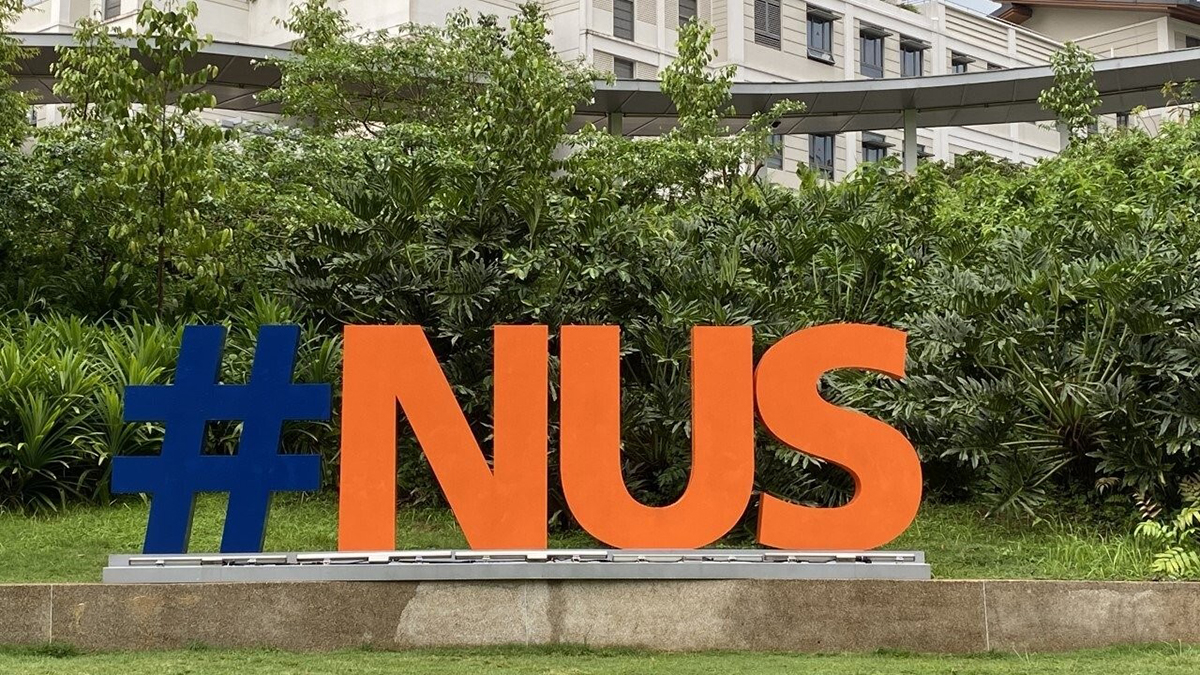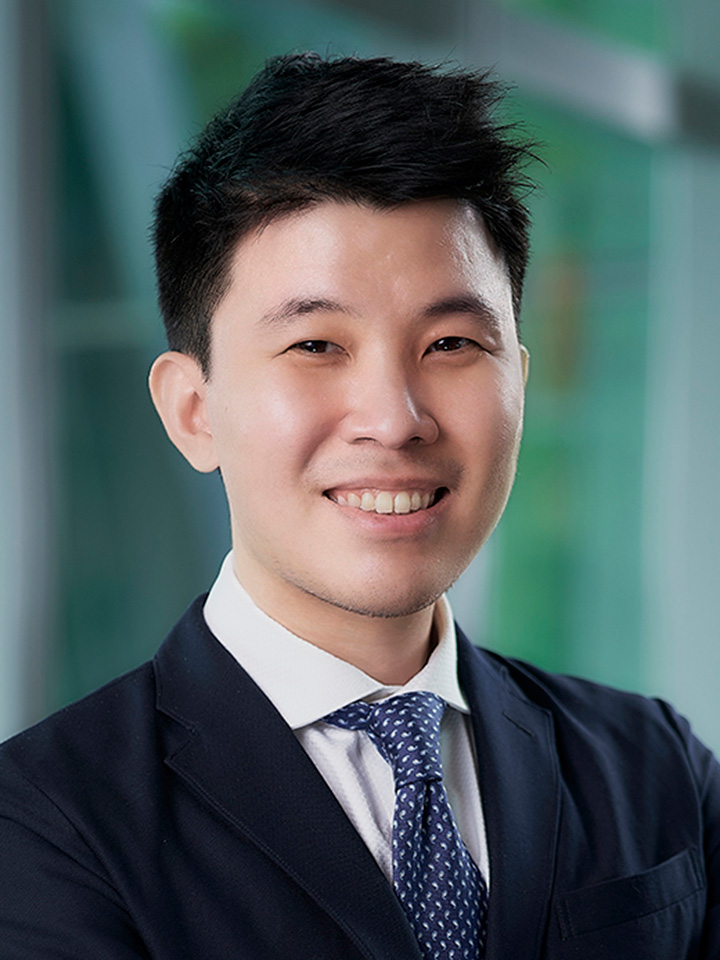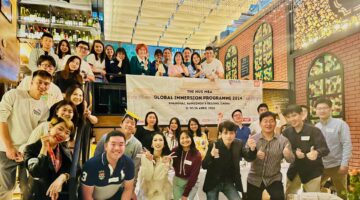Is the NUS MBA worth it?
|
|
Tom Wong
|
I finally graduated NUS last week after almost two years of part-time MBA studies. It wasn’t always clear that I would end up here, having spent some years researching different programs and grappling with life priorities.
As such, I’m writing this to offer a perspective for prospective MBA students considering NUS. Treat this as a single data point rather than a comprehensive guide, because of our different lived experiences.
First, an MBA is unnecessary for many careers. Most corporate leaders don’t have one. Approximations exist via books, online courses, and other alternatives. However, I did it for personal fulfilment, career opportunities, exposure to new perspectives by meeting a wide range of interesting people, and to learn more about disciplines I wasn’t already organically exposed to. Also, doing it on campus was a non-negotiable.
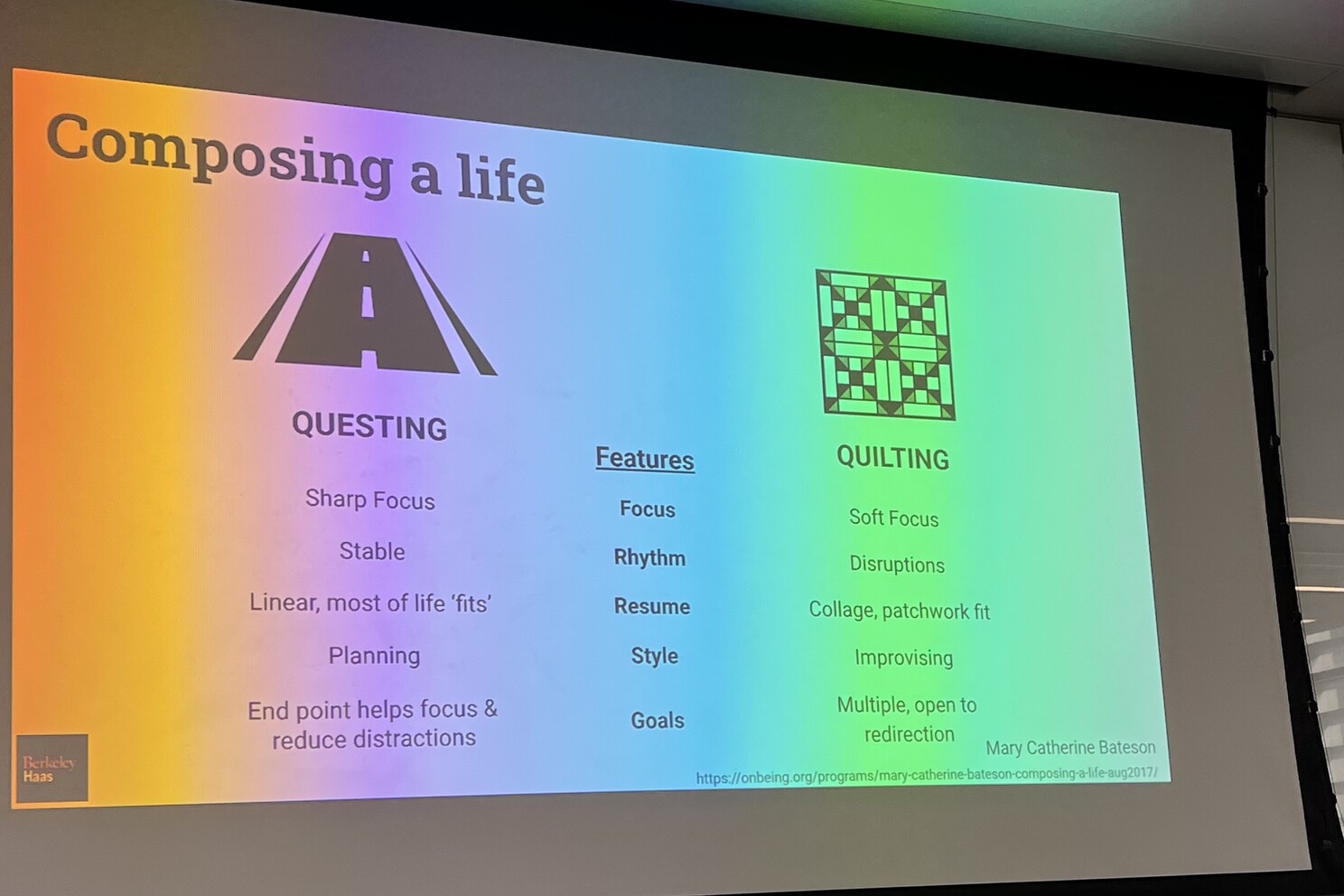
Summer exchange @ University of California, Berkeley
But this isn’t a “why MBA” post. Rather, this is an attempt to answer: “why NUS for my MBA?”. To start, my criteria was that the program needed to be offered in Singapore. It also had to be offered part-time, as I was reluctant to take on a double opportunity cost. This leads us to the first point.
Tuition
The NUS MBA is pricey in absolute terms, but sits in a comfortable middle relative to others. At just over S$90k (about US$67k), it’s not quite INSEAD (about S$140k), but neither is it the most affordable (NTU: S$82k; SMU: S$76.3k).
Doing this part-time can help amortise fees over two years. This is useful if you’re evaluating the financial hit of a one-year program (NTU, SMU, INSEAD only; NUS’s full-time MBA is 17 months). Grants and merit-based scholarships are available, and applying for them is a must.
Anecdotally, I’ve observed prices rising about S$6–$8k annually across programs in Singapore, though this fluctuates across years with some marginal differences. The takeaway is that if you know you want an MBA, do it sooner than later, because it tends to be more affordable. Business schools are businesses too.
Format
The NUS MBA is one of the few programs in Singapore offering a part-time option. Importantly, it’s virtually identical to the full-time program. This is in contrast to certain overseas MBA programs where part-timers are sometimes unable to access the full suite of school resources offered.
Learning often took place outside the classroom. In fact, we began the MBA with an intensive five-day leadership bootcamp. I also did a summer exchange program at the University of California Berkeley, and visited corporates in Tokyo, Osaka, and Kyoto for a global immersion programme. The school is intentional about these experiences, which it calls ‘experiential learning’ – with a dedicated team for this within the MBA office.
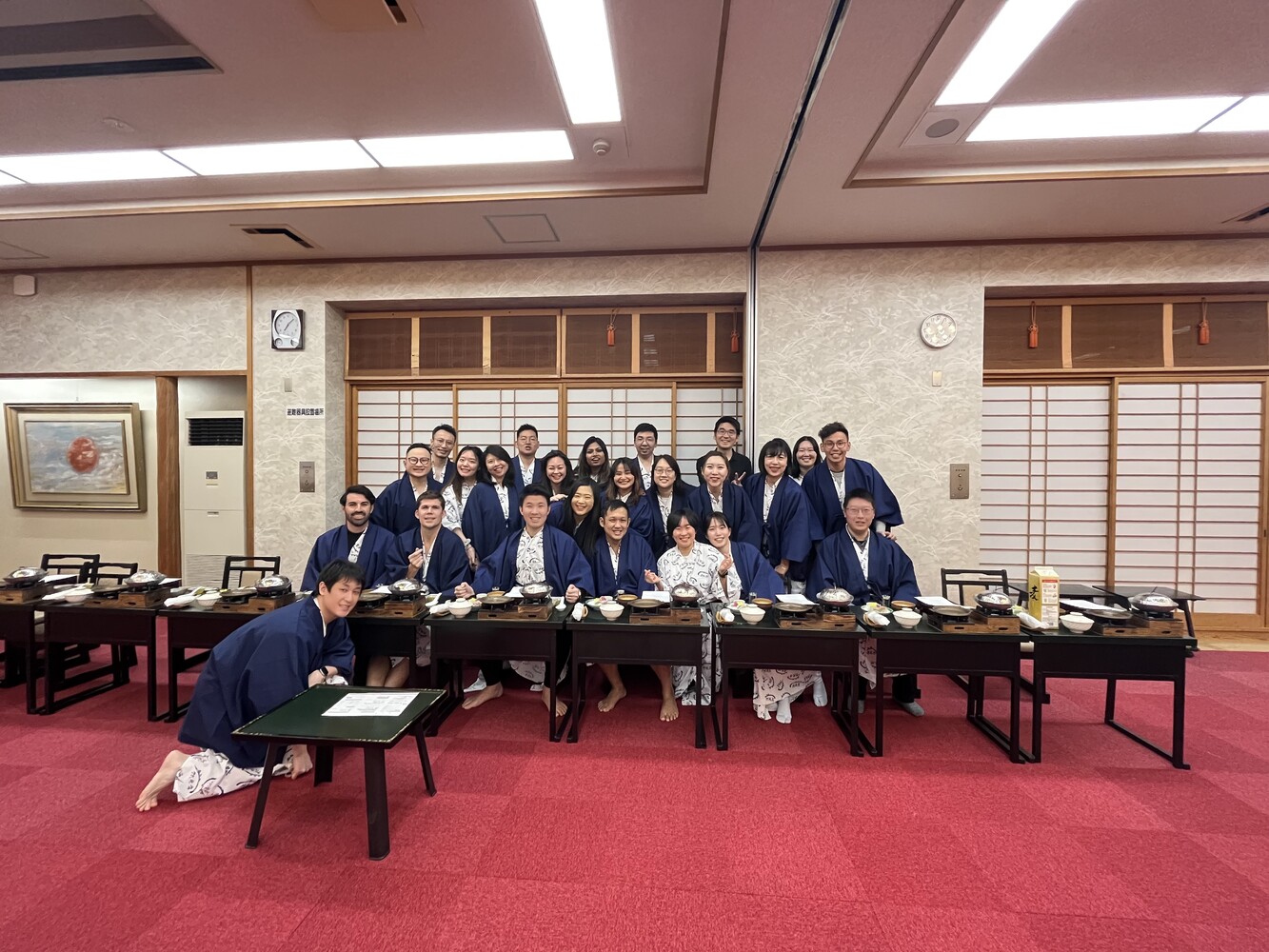
Japan GIP: Snowy final night in a Kyoto ryokan
Regular classes are mostly held from 6.30pm-9.30pm for the part-time crowd. For me, the greatest takeaway in doing this for two years is that doing hard things became normal. This includes juggling work and life priorities, test-bedding passion projects, or simply showing up to a three-hour evening class multiple times a week after a long day of work.
Together with my peers, I often found a certain kinship forged in hard times. I like Julie Zhuo‘s take, paraphrased: “The number one reason you will benefit from a top school is because you will be surrounded by great peers. And the number one reason great peers will help… is that they will normalize doing hard things. If I actually saw them doing these things… why can’t I do things like that too? Seeing people regularly try for their dreams makes you more likely to try for yours. In fact, you’ll probably feel worse not trying because you’ll feel left out.”
Cohort
Indeed, my classmates were by far the standout. NUS did a particularly excellent job in curating a cohort with a wide diversity of backgrounds – nationalities, industries, experiences, and more. I learnt alongside architects, bankers, lawyers, PhD neuroscientists, engineers, traders, many mothers and fathers (some with three or four kids!), as well as entrepreneurs with multiple businesses.
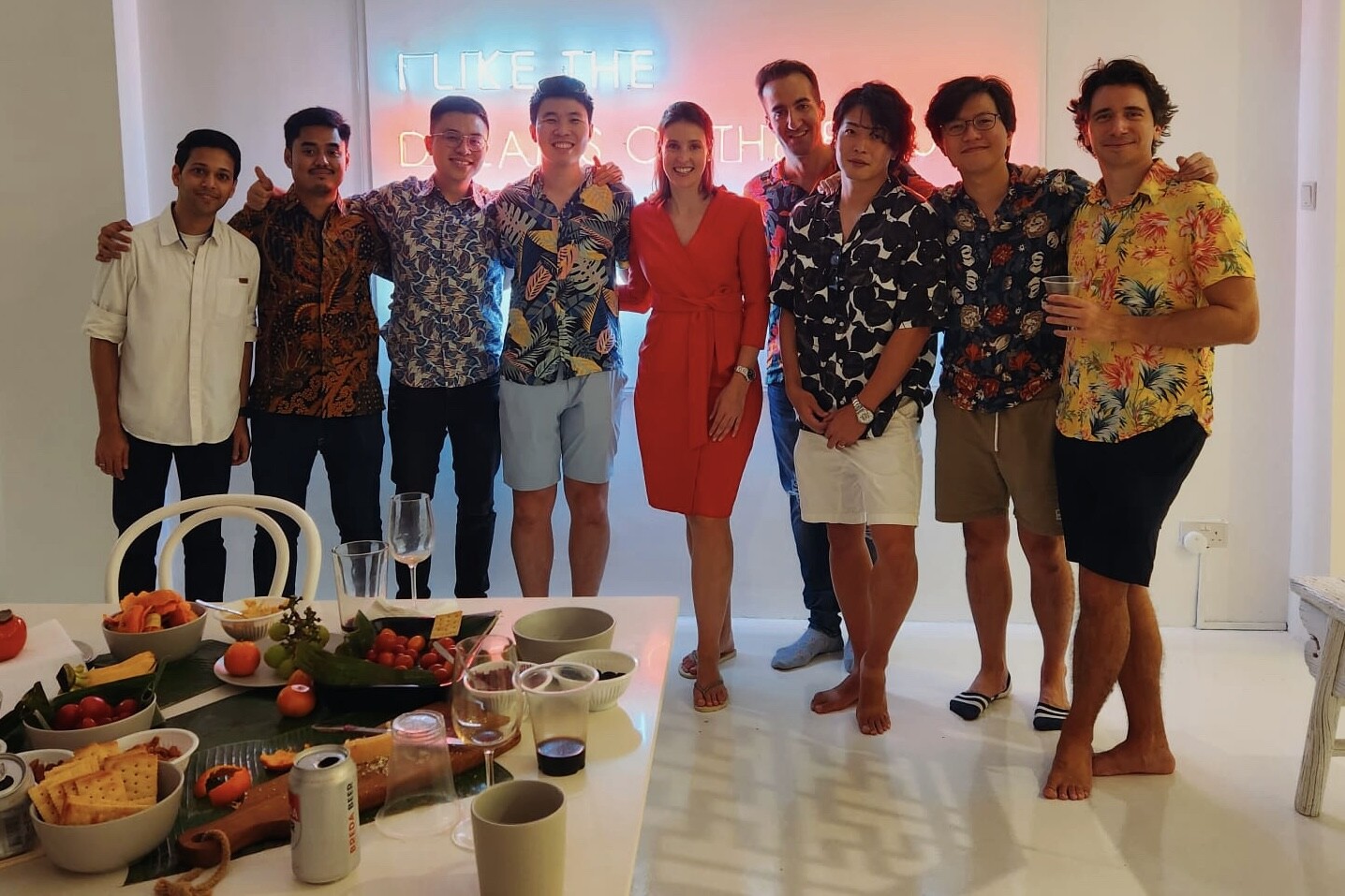
Apéro at Canvas House
Singaporeans were (and are) also a minority – comprising about 10% and 30-40% in the full- and part-time programs respectively, which I viewed as a strength. This meant we were constantly learning from each other cross-culturally, such as concepts like nemawashi (根回し) and fingerspitzengefühl. That said, while we had European, American, and other ex-Asia classmates, the vast majority were from Asia. This is one reason why the NUS MBA, while global in pedagogy and exposure, is best suited for those looking to pursue careers in Asia, in my view.
The courses were a real highlight. Apart from economics, finance, investing, and strategy courses, I got to A/B test interesting topics such as service management, negotiation, venture capital, and private equity, among others.
A standout course was Family Business. Prof Marleen Dieleman 马琳 knows her Asian family offices and conglomerates better than many Asians. Her course was also the right mix of rigorous research and good fun – in one week, we dissected the intricacies of primogeniture, family governance, and legacy planning. In another, we sampled wines at a large family-owned business (except a $100k bottle of 1998 Château Lafite Rothschild) while learning about the wine and spirit trade.
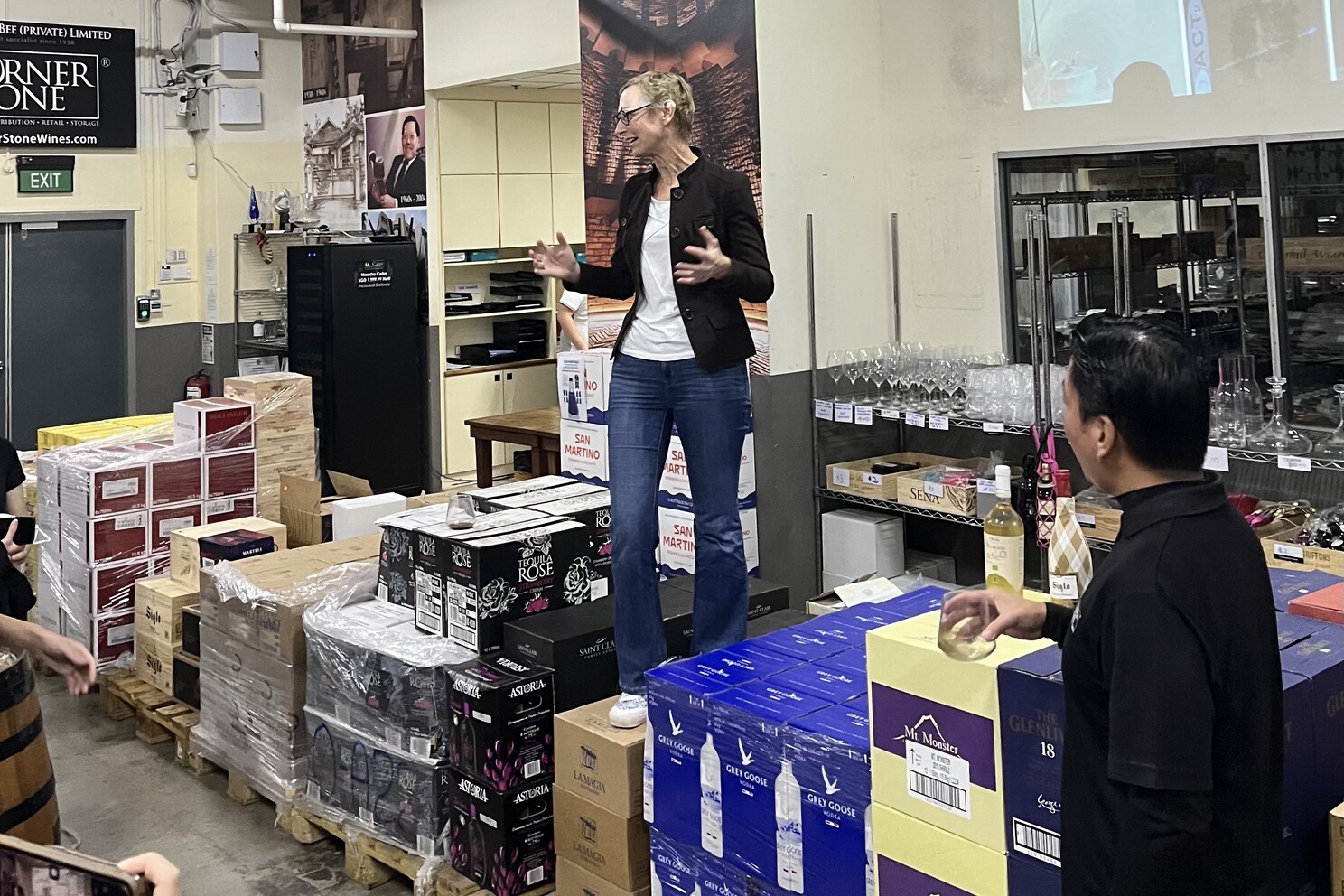
Prof Marleen lecturing in the “classroom”
One seldom-discussed advantage of doing an MBA at NUS is the breadth of its offerings as a full-service university. For example, we could enrol in courses from other faculties, and I spent a semester studying international relations at the Lee Kuan Yew School of Public Policy. Together with classmates from the government, we unpacked how foreign and public policy is rooted in nation-states’ political ideologies and philosophies – topics taking on greater importance as the world becomes more geopolitically complex.
That said, one downside of NUS’s system is that popular courses aren’t allocated to everyone who wants them. Also, some courses are only offered annually, instead of every semester. As such, some planning is needed, though this isn’t complex.
I don’t have much of a view here (as with many part-time students) since I already held a job going into the program, and wasn’t looking to move. However, for many full-time classmates, a core value proposition of the MBA was to help them switch their industry, function, or geography.
Many did pivot – some from business development to consulting and digital strategy, while others remained in their industry but landed a job in Singapore. A commonly mentioned skill was the ability to experiment, yet stay pragmatic. Pre-MBA experience is important, and some found the most success pivoting into ‘adjacent’ roles. As with most things in life, luck also often had a hand in the outcome.
Final notes
If you’re looking at a part-time MBA, I wholeheartedly endorse NUS. Importantly, assess whether there is sufficient flexibility at the workplace and at home. Remember that everything in life is full-time, except the program. Spousal support is so crucial.
Is the NUS MBA worth it? Yes, but not in the way that you might think. It’s not a silver bullet and can’t guarantee a successful or well-paying career. Any program that tells you that is selling snake oil. Instead, for me, the program’s key gift was in widening the aperture of possibility, with friendships and plentiful opportunities available across the university’s storied and deep links in academia, business, and society.
Here, Chin Yin Ong‘s take on the “mindset economy” comes to mind, paraphrased: “The landscape of work is evolving at unprecedented pace, and skills become obsolete faster than we’re able to learn it. Therefore… it is our individual and collective mindsets that become our biggest strength.”
The NUS MBA ultimately signals a particular mindset: one that prizes curiosity, reshapes assumptions, holds space for possibilities, and builds grit when it is tough to do so. In other words, the will to learn how to learn. You don’t need an NUS MBA (or any MBA really) to grasp this. But for me, learning this systematically through the program has been a priceless experience.
